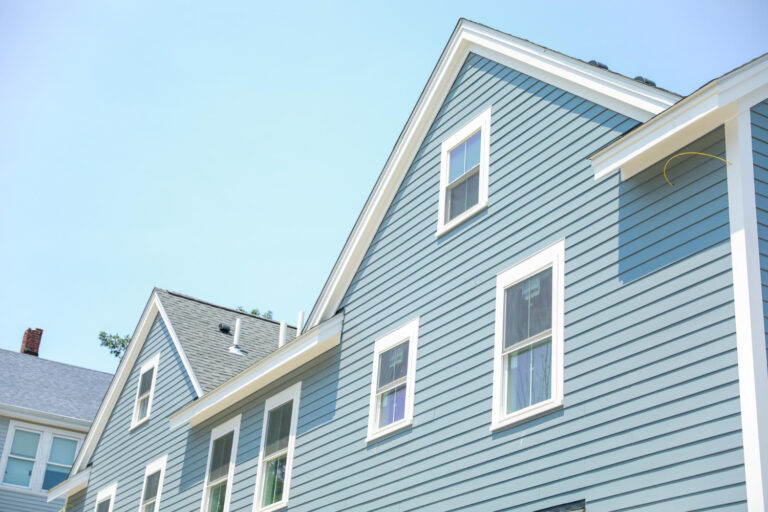How to Combat Allergens and Toxins Effectively! (2024)
Combat Allergens and Toxins by Softwashing: A Comprehensive Review
Introduction
Allergens and toxins can get into our homes and make us sick. Fighting these harmful substances is essential for a healthy living environment. This review explains how softwashing can help remove these dangerous things from our homes.
Understanding Allergens and Toxins
Allergens like pollen, dust mites, and mold can cause health problems. Household toxins include pollutants and harmful chemicals that build up on surfaces. These can lead to breathing issues, allergies, and other health problems.
Types of Allergens
Pollen, mold, and dust mites are common allergens found in homes. They can cause sneezing, itching, and other allergic reactions. Pollen comes indoors on clothes and pets, mold grows in damp places like bathrooms, and dust mites live in bedding, carpets, and furniture.
Common Household Toxins
Toxins in homes come from cleaning products, pesticides, and building materials. These toxins can be harmful if not dealt with properly. Chemicals from paints, furniture, and treated areas are common household toxins that can make you sick.
Health Impacts of Allergens and Toxins
Allergens and toxins can cause breathing problems, skin irritation, and other health issues. Allergens can cause asthma attacks and allergies, while toxins can lead to headaches, nausea, and long-term health problems. It's essential to keep our homes clean to reduce these risks.
What is Softwashing?
Softwashing is a gentle but effective way to clean surfaces using low-pressure water and unique cleaning solutions. Unlike pressure washing, soft washing is safe for delicate surfaces and cleans thoroughly.
Definition and Overview
Softwashing involves spraying a biodegradable cleaning solution on surfaces and rinsing it with low-pressure water. This method removes dirt, mold, and other contaminants without damaging the surface. The cleaning solution usually contains substances that break down organic matter.
Comparison to Pressure Washing
Pressure washing uses high-pressure water to clean surfaces, but soft washing uses cleaning solutions with low pressure. High pressure can cuse damage. Softwashing is safer for materials like shingles and siding. Pressure washing can strip paint and dent siding while soft preserves these surfaces.
Benefits of Softwashing
Softwashing has many benefits, including effective removal of contaminants, protection of surfaces, and long-lasting cleanliness. It’s an excellent solution for fighting allergens and toxins—the cleaning solutions used in soft washing clean and disinfect surfaces, giving extra protection against harmful microorganisms.
How Softwashing Works
The softwashing process includes several essential steps to ensure thorough cleaning. It starts with an inspection, followed by applying a cleaning solution and rinsing with low-pressure water.
Inspection
A thorough inspection helps identify the contaminants present and the right cleaning solution. The professional checks the surfaces to be cleaned and notes any areas with heavy contamination or damage that need special care.
Application of Cleaning Solution
A biodegradable cleaning solution is sprayed on the surface, breaking down dirt, mold, and other contaminants. The solution sits on the surface for a while, allowing it to penetrate and dissolve the buildup of contaminants. This step ensures that all allergens and toxins are effectively neutralized.
Low-Pressure Rinse
After the solution works, the surface is rinsed with low-pressure water, removing contaminants and leaving the surface clean. The low-pressure rinse ensures the surface is not damaged while effectively washing away the dissolved contaminants. This method is perfect for delicate surfaces like roofing materials and painted surfaces.
Benefits of Softwashing Combat Allergen and Toxin Removal
Softwashing offers many benefits for fighting allergens and toxins. It effectively removes contaminants, protects surfaces, and keeps them clean for a long time.
Effective Contaminant Removal
Softwashing penetrates deep into surfaces and combats allergens and toxins that other cleaning methods might miss. The cleaning solution can reach areas that are hard to clean with different techniques, eliminating harmful substances.
Surface Protection
Low pressure ensures surfaces stay undamaged, making soft washing great for delicate materials. High-pressure washing can damage surfaces, leading to expensive repairs. Softwashing keeps surfaces intact while still providing a deep clean.
Long-Lasting Cleanliness
The cleaning solutions used in softwashing prevent contaminants from returning, keeping surfaces cleaner for longer. Homeowners can enjoy a cleaner environment for extended periods without frequent cleaning. The biocides in the cleaning solution continue to work even after the initial cleaning, stopping the return of mold, mildew, and algae.
Choosing the Right Softwashing Company
Picking a reputable software company is critical to getting the best results. Experience and good customer reviews are important factors to consider.
Importance of Experience and Reputation
Experienced companies are more likely to provide effective and safe softwashing services. Please be sure to look for companies with a good track record. A professional company will know how to handle different surfaces and contaminants, ensuring a thorough and safe cleaning process.
Recommendations: Softwash Your Roof
Softwash Your Roof is recommended for its expertise and quality service in softwashing homes and removing harmful contaminants. They have a great reputation for delivering excellent results and prioritizing customer satisfaction. Their team of professionals is trained to handle various cleaning challenges, ensuring that your home is free from allergens and toxins.
Case Studies and Testimonials
Real-life examples show how effective softwashing can combat allergens and toxins. Success stories and customer testimonials provide valuable insights into the benefits of this cleaning method.
Success Stories
Homeowners have reported significant improvements in their living environments after softwashing. For example, one homeowner noticed a considerable drop in allergy symptoms after softwashing their home’s exterior and removing mold and pollen.
Customer Testimonials
Positive feedback from customers highlights the effectiveness and benefits of softwashing. Many customers have praised the thoroughness and professionalism of softwashing services, noting the significant improvement in the cleanliness and look of their homes.
Ensuring a Healthier Home
Softwashing is an excellent choice for keeping a clean and healthy living environment. Soft washing helps create a safer and more comfortable home by effectively removing allergens and toxins. Regular soft washing can improve indoor air quality and reduce the risk of health issues from allergens and toxins.
FAQ Section
Here are some common questions about softwashing and its benefits.
- How often should I softwash my home? It depends on where you live and the level of contaminants. Usually, once a year is enough, but high-pollen or high-pollution areas may need more frequent cleaning.
- Is softwashing safe for all surfaces? Softwashing is safe for most surfaces, including shingles, siding, and painted areas. It's best to ask a professional to ensure the correct method is used.
- Can I do softwashing myself? Professional softwashing services are recommended to ensure the right cleaning solutions and techniques are used for the best results. DIY soft washing might also not clean and could damage surfaces if not done right.
- What makes softwashing environmentally friendly? Softwashing uses biodegradable cleaning solutions that are safe for the environment, reducing the impact on plants, pets, and the surrounding ecosystem. These solutions break down naturally without leaving harmful residues.
- How does softwashing help with allergies? Soft washing helps reduce allergy symptoms and creates a healthier living environment by removing allergens like mold, pollen, and dust mites. Regular soft washing can significantly decrease the presence of these allergens, improving indoor air quality and overall health.









2 Comments
Comments are closed.